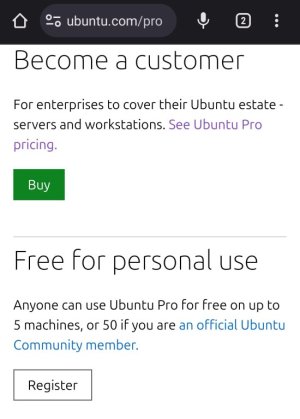I already pay for MS 365 (actually had a glitch that after paying for 2 years at $40 per year, it gave me another 3 free just by enabling and disabling auto-renew repeatedly). But if they added windows for another $3 to $5 a year or something like that, it might make sense. Though to date, the only windows I ever paid for was 3.1 (and maybe the 3.11 upgrade) and 95. I did pay for DOS 6.0 and the 6.2 and 6.22 "step ups". Since then its always been free, I had MSDN at one job, then Technet for years, then 10 and 11 have been free (and mixed in there were the days of keygens and cracks). Also got various free copies at MS conferences, OEM copies included with PCs, etc. So I'd like to keep that streak going

A ton of sites have popped up selling stolen keys for windows and office ever since they started charging for windows again and made people subscribe to 365. I suspect that would just get even more popular if they change windows to subscription model.
You don't need stolen keys:
https://www.bleepingcomputer.com/ne...-windows-for-customer-after-activation-fails/
As for Linux vs. Windows, millions of kids and young adults are growing up with Chromebooks right now. I've worked for large enterprises that have moved to Chromebooks for non-tech / accounting users with lower demands (i.e. support staff etc).
But it's a curve. Whenever these arguments come up, people naturally pick a side.
If the right is extreme tech skills, and the left is "can't operate an old school flip phone", most people are in the middle. For those of us with experience in systems, being able to switch is greatly dependent on the tech stack of the place we work.
Linux is difficult to run in an enterprise settings when everything is setup for on-prem Windows (AD, Exchange etc), which is becoming less and less prevalent. Bit easier if it's in the cloud with Azure / M365, but not nearly as easy as running the companies "main supported OS". And it's still more work to run for personal use than Windows, in many ways.
Having said that, I've made the switch over the last few years (and I'm an old-school MS guy, systems engineer from the NT days, through Win2k etc).
Whether "you" or "someone" can switch is a combo of not just skill, but work or hobby environment. The support isn't as great as on Windows for many applications, but there are a number of distros that are actually really easy to get started with. Not Ubuntu IMO, but ZorinOS and Linux Mint would be my top choices for someone new starting out.
In the end, people are going to need to pick what they care more about, the pain, cost and potentially lack of privacy of running MS products, or something on the Linux side. And then there are wildcards such as ChromeOS which frankly would do for the majority of users who only do basic web-based tasks, which are a lot of folks on the left side of the above curve. With the expanded OS support recently announced for Chromebooks, maybe it's becoming an even better option.
Just my $0.02.

